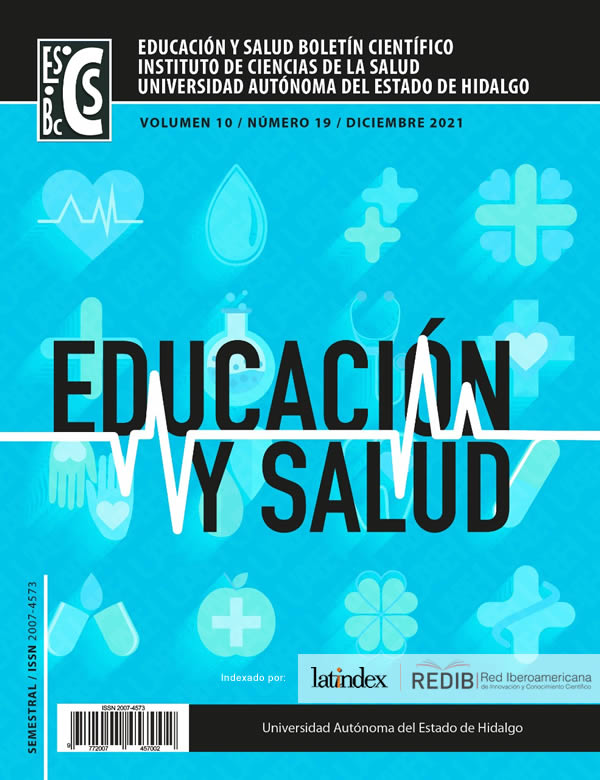Health emergency COVID-19, the road to accelerate open access
Abstract
As of December 18, 2020, the countries that occupy the first places in deaths from Covid-19 are Brazil, Argentina, Colombia and Mexico, so it is urgent to access information from reliable sources without restrictions, this being a matter of global urgency and where open access also known as Open Access becomes even more relevant. Therefore, the hypothesis presented in this essay is whether "there is a relationship between the positive impact of open access and the generation of information on the issue of the covid-19 emergency", the topics addressed the impact of COVID-19 in 4 of the most affected countries in Latin America and the Caribbean and the accelerated process of research and publication. This essay was carried out in documentary form, allowing to respect the "stay at home" indications. information was consulted, compiled and selected virtually, using information search tools in metasearch engines and databases among others, finding recent news and publications from various reliable sources, among the main sources of consultation were selected organizations such as UNESCO, CLACSO, Organizations of American States, United Nations, among others, and editorial institutions were consulted in newspaper libraries, among which stand out Redalyc, Latindex and SciELO, Microsoft Academic and Google Scholar search engines, which allowed us to select and identify as main results that the number of publications on the topic of covid-19 doubled with an average of 15 days, and also identified that in some countries laws and policies on open access were created, which allowed us to find the basic answer that this covid-19 emergency is the path that has accelerated open access in several countries, thus making more information, knowledge and research available.
Downloads
References
Suber P. Acceso abierto. Primera ed. Toluca: Universidad Autónoma del Estado de México; 2015.
Universitat de Barcelona , GRC Esbrina , Subjetivitats i Entorns Educatius Contemporanis , Red universitaria de Investigación e Innovación , Valverde J. DISPÒSIT DIGITAL. [Online].; 2013 [cited 2020 Diciembre 21 ]. Available from: http://hdl.handle.net/2445/36335.
Tzoc E. El acceso Abierto en América Latina: Situación actual y expectativas. Interamericana de Bibliotecología. 2012; 35(1): p. 83-95.
Melero R. Acceso abierto a las publicaciones científicas: definición, recursos, copyright e impacto. El profesional de la información. 2005; 14(4): p. 255-266.
Manuel J, Subirats I. Open archives initiative. Protocol for metadata harvesting (OAI-PMH): descripción, funciones y aplicaciones de un protocolo. El profesional de la información. 2003; 12(2): p. 99-106.
Piwowar H, Priem J, Larivière V, Alperin J, Matthias L, Norlander B, et al. The state of OA: a large-scale analysis of the prevalence and impact of Open Access articles. PeerJ. 2018;: p. 1-23.
Open access. Open access 2020. [Online].; 2020 [cited 2020 Diciembre 25]. Available from: https://oa2020.org/b12-conference/.
Araiza V, Ramírez M, Díaz A. El Open Access a debate: entre el pago por publicar y la apertura radical sostenible. Investigación Bibliotecológica. 2019; 33(80): p. 195-216.
OMS. Organización Mundial de la Salud. [Online].; 2020 [cited 2020 Diciembre 18 ]. Available from: https://www.who.int/es/emergencies/diseases/novel-coronavirus-2019.
Torres-Salinas D. Ritmo de crecimiento diario de la producción científica sobre Covid-19. El profesional de la información. 2020; 29(2): p. 1-6.
UNESCO. UNESCO. [Online].; 2020 [cited 2020 Diciembre 18]. Available from: https://es.unesco.org/covid19/communicationinformationresponse/opensolutions.
Salamanca A. ¿Información rápida o información de calidad? El dile ético para los editores de revistas en tiempos de pandemia. NURE Investigación. 2020; 17(106): p. 1-2.
Organización de los Estados Americanos. Departamento de Derecho Internacional Secretaría de Asuntos Jurídicos. [Online].; 2020 [cited 2020 Diciembre 22]. Available from: http://www.oas.org/es/sla/docs/foro_virtual_importancia_acceso_informacion_publica_Nota_Conceptual-5-18-2020.pdf.
Vilca J, Condori N. Adaptación del proceso editorial y la importancia del acceso abierto durante la pandemia del COVID-19. Revista Científica Ciencia Médica. 2020; 23(1): p. 4-5.
Open Access. Open Access 2020. [Online].; 2020 [cited 2020 Diciembre 25 ]. Available from: https://oa2020.org/progress-report/.
Agencias Sinc. Sinc. [Online].; 2020 [cited 2020 Diciembre 25 ]. Available from: https://www.agenciasinc.es/Noticias/La-ciencia-en-abierto-aumenta-al-90-en-la-crisis-del-coronavirus?fbclid=IwAR2P-.
Naciones Unidas. Informe: El impacto del COVID-19 en América latina y el caribe. , CEPAL; 2020.
Naciones Unidas, CEPAL. Inforem Especial Séptimo COVID-19 Universalizar el acceso a las tecnologías digitales para enfrentar los efectos del COVID-19. Naciones Unidas, CEPAL; 2020.
CLACSO. CLACSO. [Online].; 2020 [cited 2020 Diciembre 25 ]. Available from: https://www.clacso.org/tendencias-recientes-en-las-politicas-cientificas-de-ciencia-abierta-y-acceso-abierto-en-iberoamerica/.
Aguado E, Becerril A. AmeliCA. [Online].; 2020 [cited 2020 Dicembre 25 ]. Available from: http://amelica.org/index.php/2020/06/12/acceso-abierto-no-comercial-y-la-declaracion-de-mexico/.












